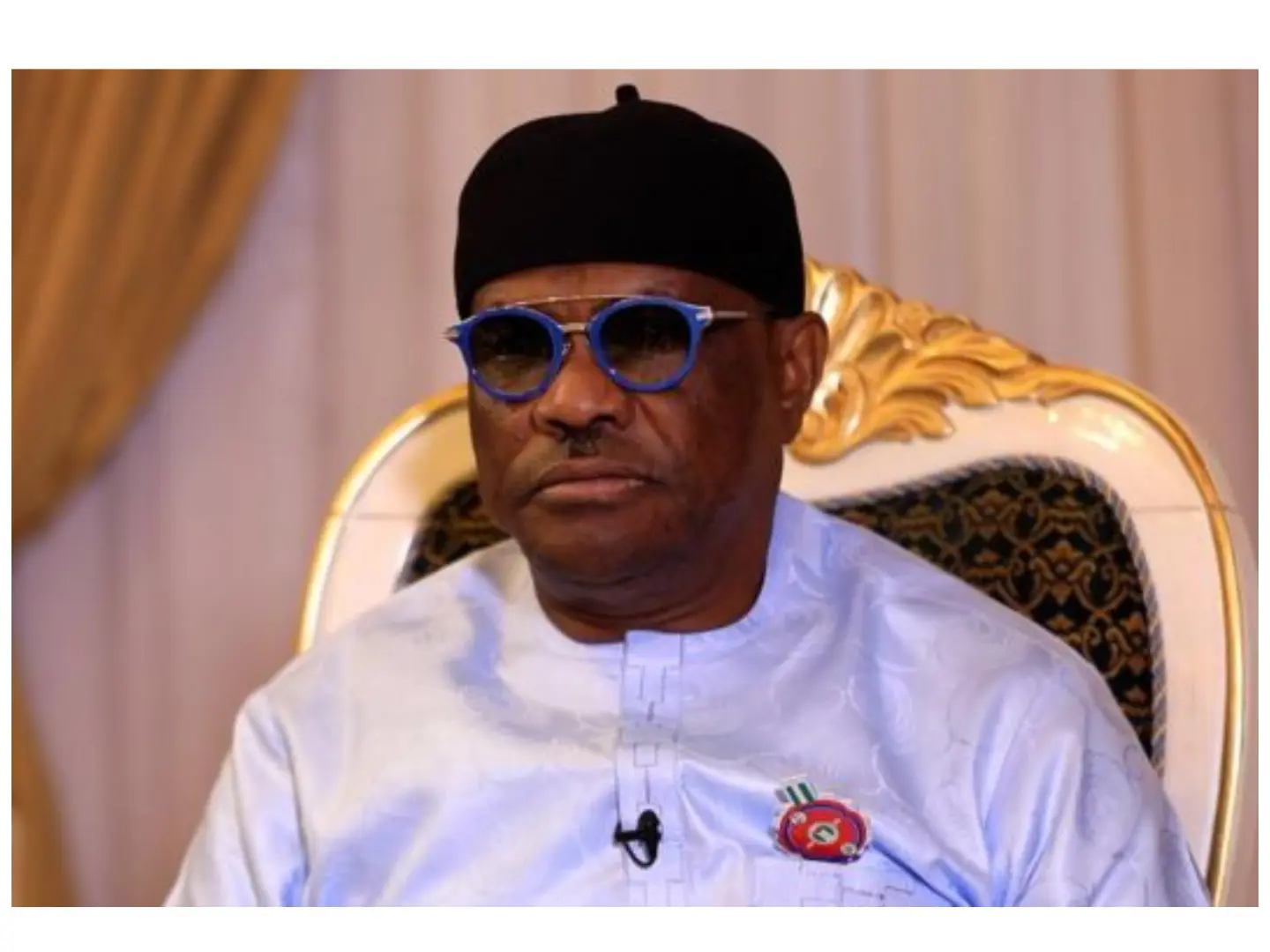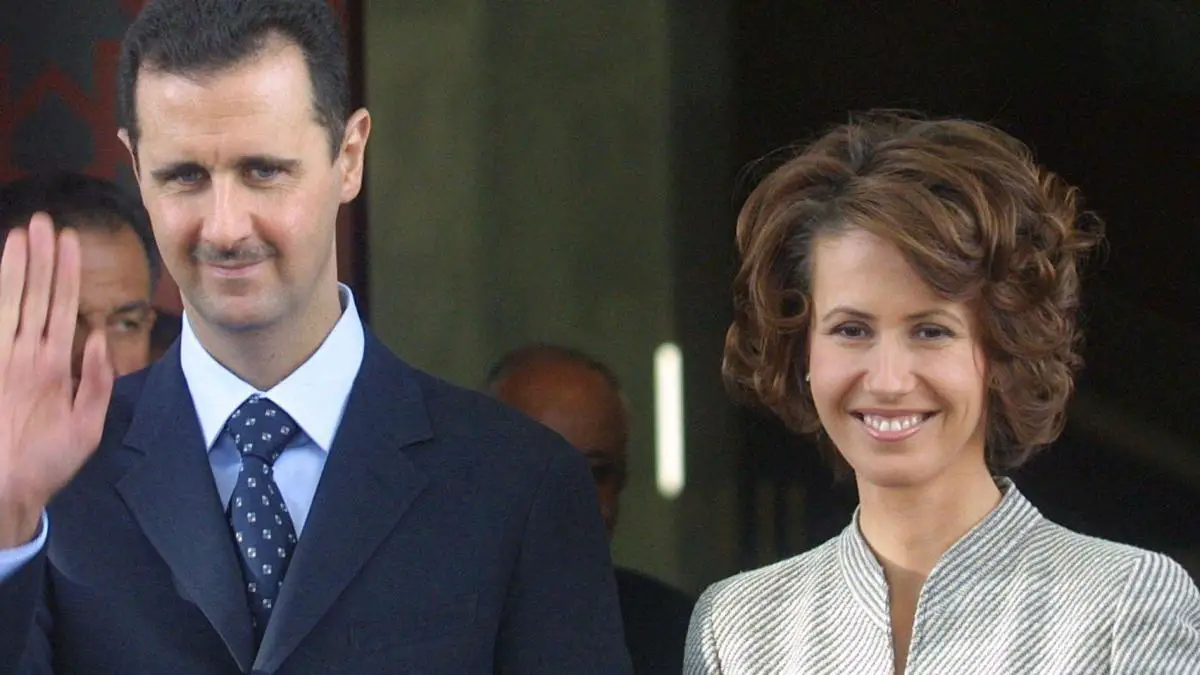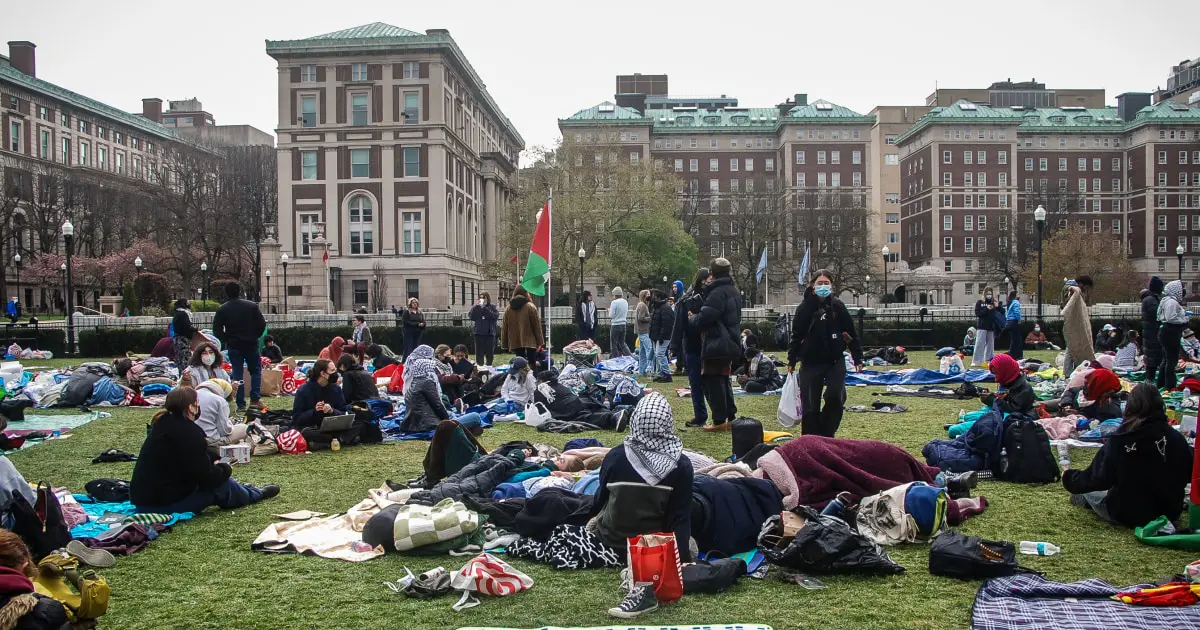
Pro-Palestinian student protesters resumed a third day of demonstrations Friday at Columbia University, saying their resolve has strengthened despite mass suspensions and arrests.
“This is the moral thing to do,” said Eliette, 25, who uses they/them pronouns and declined to give their last name out of fear of retaliation from the school.
The Columbia graduate student was one of 113 people arrested Thursday after the university asked police to break up a tent encampment students had set up early Wednesday on its south lawn in support of Gaza.
Columbia President Nemat “Minouche” Shafik said in a memo to police that the protesters had ignored multiple written and verbal warnings to disperse and were trespassing and damaging campus property, among other violations.
The students who were arrested were peaceful and did not resist, NYPD Commissioner Edward Caban said at a news conference.
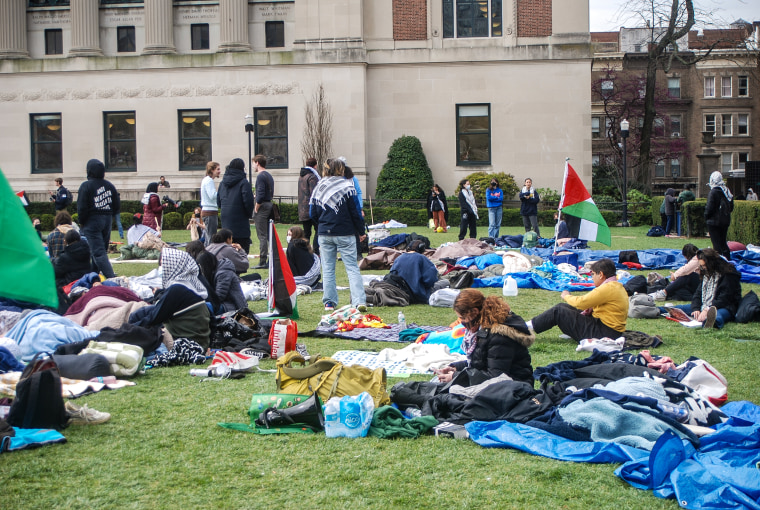
Eliette said protesters were sitting in a circle and linking arms when they were detained around 1:30 p.m. The student was released from police custody at about 8 p.m. Thursday and was back at the protest Friday morning.
“Students who protested in the encampment are on the right side of history,” Eliette said. “This is extremely historic.”
Johanna, another graduate student who was arrested and also feared retaliation, said she was loaded onto a Department of Correction bus and taken to the NYPD headquarters, where she waited in line for about eight hours to get processed, with her hands zip-tied behind her back.
“My shoulders and wrists are still bruised, still hurt from being in handcuffs for that long,” she said. “It was just hours and hours.”
The protesters were eventually brought into jail cells in groups of about three, Johanna said. She said she was released shortly after 10:30 p.m. Thursday.
Johanna said she has not received any notice about a suspension from her school. “I am definitely afraid of it,” she said. “But it won’t stop me from doing what’s right.”
A growing number of demonstrators joined her Friday as protesters continued to occupy the campus space, where tents have been replaced by large blankets. Many protesters were sitting in prayer Friday afternoon.
Barnard College and Columbia did not say how many students were suspended or how long the suspensions would last.
Under Columbia’s new policy on demonstrations, which was implemented in February, students can protest in certain outdoor areas on weekdays from noon to 6 p.m. with prior approval.
A Columbia spokesperson said that Wednesday’s encampment was not authorized.
“We have rules regarding the time, place, and manner that apply to protest activity, and we will continue to enforce those,” the spokesperson said Friday. “We remain in regular contact with our students and student groups and are committed to ensuring the core functions of the University continue.”
Barnard did not immediately respond to a new request for comment. In a statement Thursday, the school said it prioritizes “students’ learning and living in an inclusive environment free from harassment.”
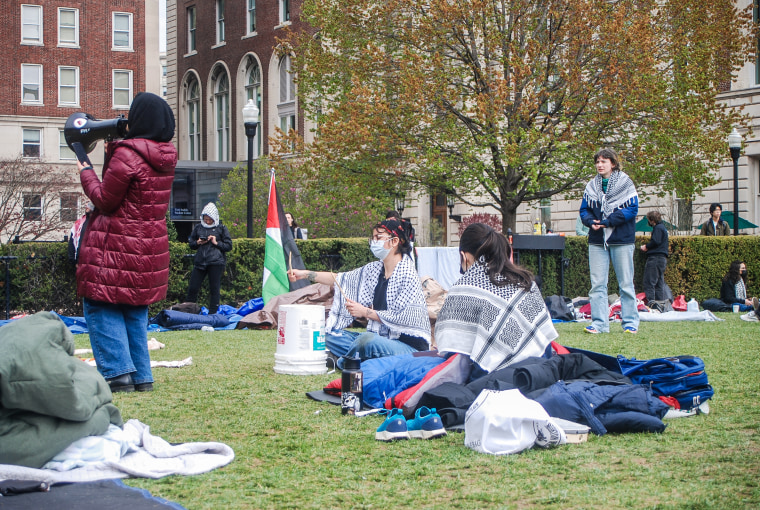
Tensions over free speech have erupted on some U.S. college campuses since the war between Israel and Hamas started in October.
This week, the University of Southern California canceled a Muslim student’s valedictorian speech claiming security concerns. Last week, a University of California, Berkeley, professor confronted a Muslim student during a dinner for graduating law students.

